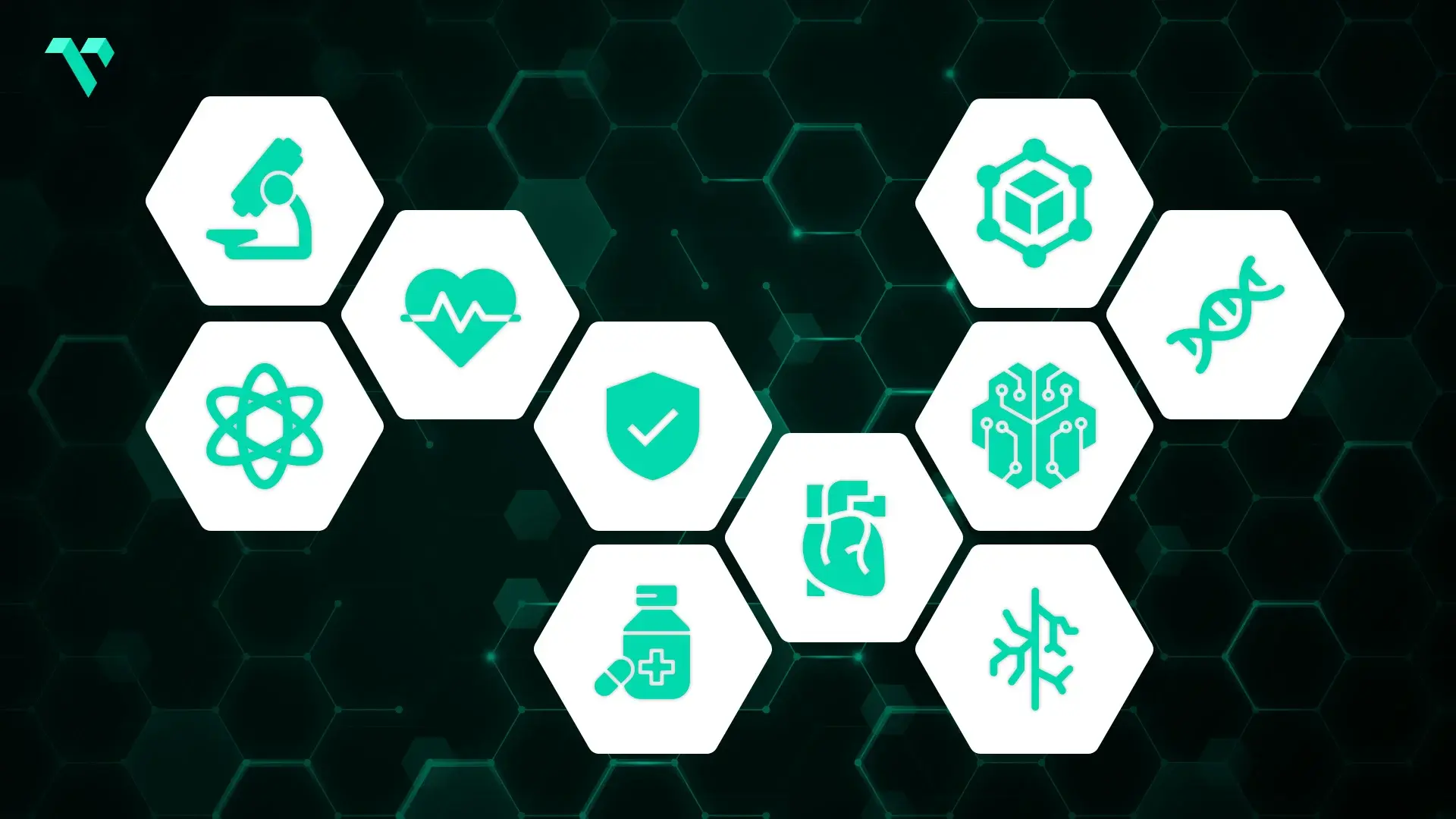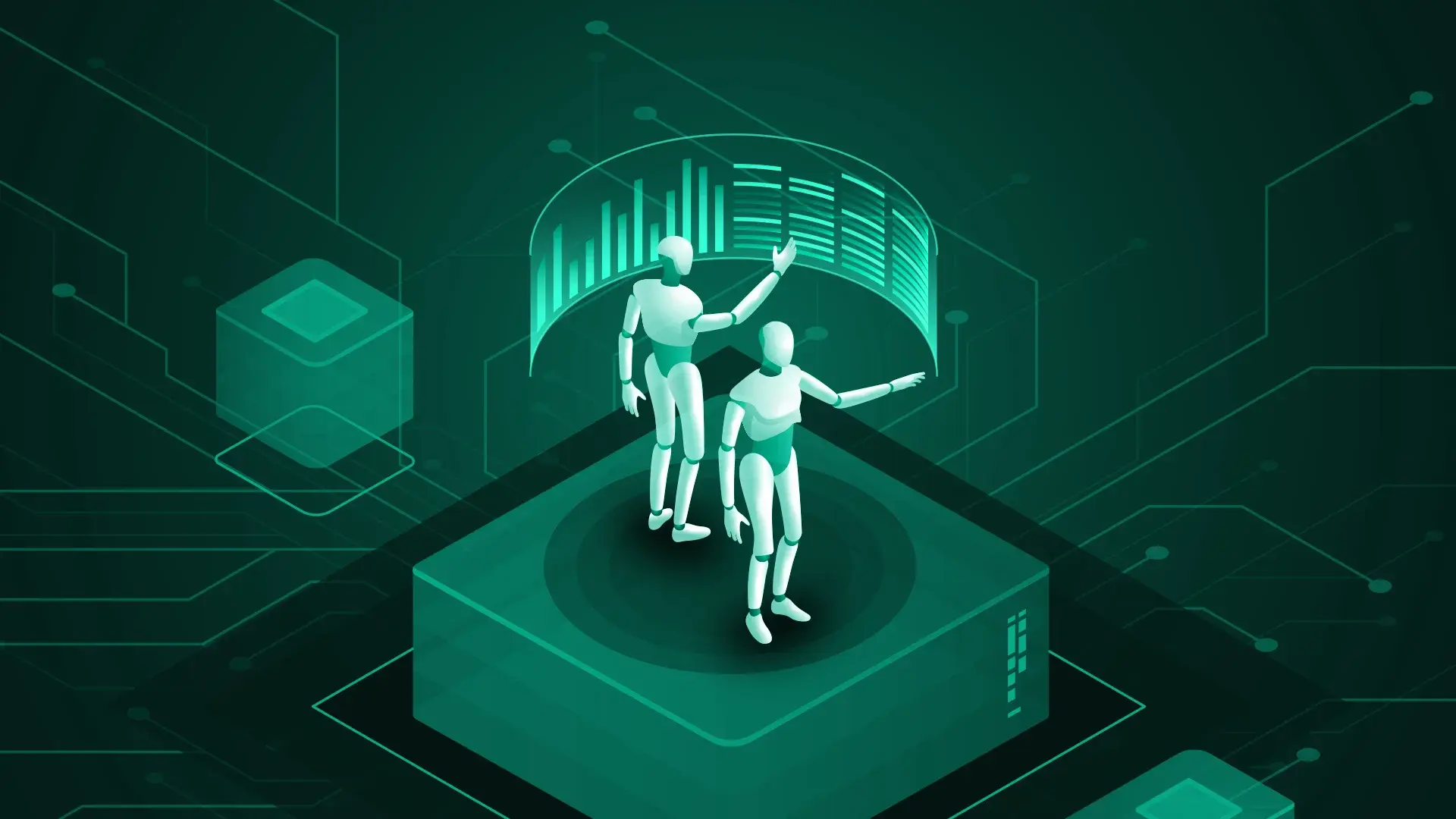


With emerging technologies like Blockchain and Artificial Intelligence (AI), the life sciences industry is leading with impeccable transformation. These innovations redefine how data is analyzed, managed, and shared, making efficient healthcare outcomes and streamlined processes. Blockchain ensures high-end security and integrity of sensitive data, whereas AI offers advanced data analysis, accelerating drug discovery and improving personalized medicine. These technologies create an efficient and transparent industry as a team, transforming the research, treatment, and healthcare delivery world.

Transparency, integrity, and data security are supreme factors in life sciences. This industry has extensive sensitive information, such as patient data, research findings, and clinical trial results. Blockchain technology focuses on these challenges by offering a decentralized and immutable ledger that ensures data cannot be altered or tampered with. This transparency creates a sense of trust among all stakeholders, from patients and healthcare providers.
A notable example of Blockchain’s impact is the pharmaceutical supply chain. This industry has to face many challenges with counterfeit drugs that can result in patient harm and financial loss. IBM Food Trust is being adapted to pharmaceuticals to track drugs from manufacturing to delivery. Blockchain technology ensures that every transaction is recorded securely, making it impossible for counterfeit drugs to enter the supply chain. By 2026, AI & blockchain could save the US healthcare economy up to $150 billion annually by minimizing costs linked with fraud, regulatory compliance, and data reconciliation.
Clinical trials are imperative for developing new drugs but often face inefficiencies, complex data management and high costs. Blockchain technology aids in streamlining clinical trials by automating patient consent processes and enabling efficient data sharing among stakeholders. Smart contracts with coded agreements, offer seamless collaboration between researchers, regulatory authorities and pharmaceutical companies.
Pfizer is a great example, as it has been incorporating blockchain solutions to enhance the efficiency of its clinical trials. Working with other pharmaceutical companies, Pfizer uses blockchain to supervise clinical trial data and enhance transparency. The Clinical Trials Platform established by Pfizer aims to make clinical trial data immutable, enhance participant trust, and reduce the time needed for data verification.
AI is changing the course of life sciences by enabling advanced data analysis that goes far beyond human capabilities. From discovering new drugs to predicting disease outbreaks, AI’s potential is reaching cloud 9. AI algorithms can process vast datasets, generate insights for effective decision-making, and identify patterns.
A prominent example of AI in drug discovery is Moderna's use of machine-learning models during the COVID-19 pandemic. Moderna used AI to expedite the design of its mNRA vaccine, significantly reducing the time from concept to clinical trials. This vast development process was brought to reality by AI’s ability to analyze genetic sequences and predict immune responses, showcasing how AI can transform the efficiency and speed of drug development.
Blockchain technology has played a crucial role in addressing Jordan's refugee crisis by significantly lowering transaction fees—achieving a remarkable 98% reduction. Refugees have been able to reclaim their identities within camps through innovative solutions like iris-scanning technology. This secure identification system, powered by blockchain, allows them seamless access to essential resources such as food and basic utilities, offering a more efficient and dignified approach to humanitarian aid.
The world of AI is also making exceptional progress in B2B marketing in the life sciences industry. Companies are incorporating AI-driven predictive analytics to streamline marketing strategies, identify potential customers, and personalize outreach efforts. This approach improves lead generation by using result-oriented insights to predict which prospects will convert.
According to a report by MarketsandMarkets, AI in healthcare is likely to grow from $1.3 billion in 2022 to $13 billion by 2027, with a CAGR of 44.9%. This growth is expected by the increasing need for personalized marketing strategies that incorporate AI to understand buying behaviors and customer needs.

Integrating AI and blockchain in life sciences creates a synergy that improves and enhances data security, collaboration, and analysis. While AI offers predictive insights and analytics, blockchain ensures the integrity and security of underlying data. Together, they enable a robust framework that enhances transparency and trust in the life sciences ecosystem.
Medicalchain uses blockchain to share and store electronic health records securely. Patients can control their data and grant access to it to health providers and researchers. By combining blockchain security with AI’s analytical power, Medicalchain aims at personalized treatment plans while ensuring patient data stays secure and private.
One of the most impactful applications of blockchain in life sciences is Smart Contracts. These contracts are self-executing, automating transactions and agreements, eradicating the need for intermediaries, and reducing the cost of administrative procedures. In research collaborations, smart contracts ensure that data-sharing agreements are enforced automatically, making the execution efficient.
Another example is Chronicled’s MediLedger, which uses blockchain and smart contracts to manage pharmaceutical billings between companies. This network ensures all procedures are performed automatically, minimizing errors and improving supply chain effectiveness. It reflects how blockchain can create a streamlined network across the industry, reducing costs and improving operational efficiency.

AI and Blockchain have transformed healthcare delivery incredibly, particularly personalized medicine. AI’s ability to analyze genetic and clinical data has allowed healthcare providers to offer tailored treatments, whereas blockchain ensures that sensitive information remains confidential, secure, and accessible to authorized users. This integration has opened new doors to targeted therapies, improving patient outcomes.
According to Accenture, based on the skyrocketing potential of blockchain technology, 70% of healthcare executives plan to invest in it as it ensures enhanced data security and interoperability.
The global blockchain healthcare market is predicted to grow to $1.6 billion by 2026, at a CAGR of 64.4% from 2021. These investments showcase the impeccable growth of AI and blockchain as imperative drivers of innovation in life sciences.
Blockchain and AI are revolutionizing life sciences by improving industry trust, transparency, and efficiency. These technologies are reshaping how life sciences companies function, from personalized patient care to clinical trial data. As adoption increases, blockchain and AI will evolve and drive innovation, making healthcare more personalized, accessible, and secure.